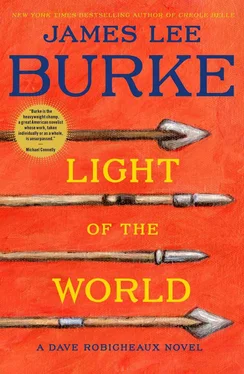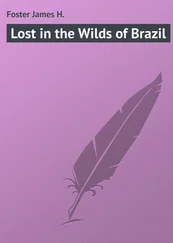Even in retrospect, I cannot say with any exactitude what occurred on the lake that fateful summer night in 2012. I can tell you what I believe happened. I have never bought into the notion that time is linear, in the same way I feel that straight lines are a superimposition on the natural world and contravene the impetus that drives it. All matter aspires to roundness and symmetry, in the same way that the seasons are cyclical and that God in His way slays Himself with every leaf that flies. In other words, inside eternity, the alpha and the omega meet and end at the same place. I guess a simpler way of saying it is that things are often not as they appear.
Most people would conclude that the past cannot be changed. I’m not sure about that. Felicity Louviere changed her life by somehow taking on the historical role of a slave girl who died in the Carthaginian arena in the early third century. I guess that seems like an absurd premise until we consider the possibility that the dead are always with us, beckoning from the shade, reminding us that we’re actors in the same drama they have already lived and that they can help us with our lives if we will only let them.
Who were the other men on the grounds the morning Asa Surrette died? I don’t know. The only bodies the authorities found at sunrise were the ones we shot. I have two theories about the shadowy figures who came out of the darkness and then disappeared. They could have been part of a larger group, perhaps international mercenaries in the pay of a global corporation run by the business partners of Love Younger. But who would believe such a wild speculation? A second possibility might have more credibility. Men like Caspian Younger and his father are always among us. They do not take power; we give it to them. The armies of the night are faceless and mindless and the modern equivalent of Visigoths, but when they have a leader, their time in history rolls around again.
Surrette appropriated the name of Caracalla’s brother. Surrette was not a demon; he was a worm. The irony was that he appropriated the name of a worm and wasn’t aware of it.
Clete Purcel was amazingly resilient. His wounds healed during the summer and early fall, and by October we were able to go up to British Columbia and fish the Elk River, then continue up to Banff and Lake Louise, in the heart of the Canadian Rockies. Molly and Albert and Alafair and Gretchen came with us, and each morning we ate breakfast together on a terrace overlooking gardens filled with flowers against a backdrop of the biggest, bluest mountains I have ever seen. We didn’t talk about the events of the summer, or the blood we had shed, or the death of Asa Surrette and Love Younger and his son Caspian. It was autumn, a time when it’s better to let the wind winnow the chaff on a granary floor. To dwell upon the evil that men do gives second life to their deeds and lionizes poseurs and nonentities who will never be more than historical asterisks.
When Clete and I hiked above Lake Louise, he had to sit down and catch his breath because of the thin air and the steepness of the grade. As always, he gave no credence to the seriousness of his physical and psychological wounds; he treated the world as a giant playground where misfortune became a problem only if you allowed it to be one. But as we sat in the dappled shade of the pines and cedar trees, looking down at the milky green waters of Lake Louise and the gold poppies in full bloom, I saw in his shirt pocket the letter he had received that morning at the hotel, and I knew where his thoughts had gone.
“Felicity is in South America, huh?” I said.
“Yep, that’s what she said,” he replied. “Working with the Indians like her old man did.”
“She’ll be back one day.”
“No, she won’t. When her kind go away, they go away.”
“Did you know I got a card from Wyatt Dixon? He didn’t sign it, but I know it was from him.”
“Don’t mention that guy to me, Dave.”
“Okay, I won’t.”
He unwrapped a piece of peppermint candy and put it in his mouth and sucked on it. “So what’d he say?”
“ ‘Tell Miss Gretchen good luck with her moviemaking.’ ”
“That’s it?”
“That’s it,” I said. “Ready?”
“I’d like to just sit here awhile. The lake looks like a giant green teardrop at the foot of that snowfield. I’ve never seen flowers that gold,” he said.
“I think you’re right.”
“Dave?” he said.
“What’s up?”
“You think we’ve done okay with our lives? You think the good outweighs the bad?”
“That’s the way I’d read it.” I cupped my hand on his shoulder. “Let me know when you’re ready, and we’ll finish our stroll and take everyone to lunch. It’s a grand day for it.”
“Roger that, big mon,” he replied.
We got up and hiked the rest of the way to the log teahouse on top of the mountain, the trees so thick and tall on either side of us that they seemed to touch the clouds, more like the pillars of heaven than earthly trees.












